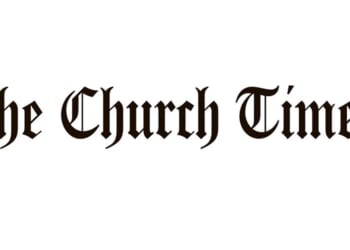SUCCESSFUL lobbying to roll back governance reform in the wake of corporate failure and the watering-down of commitments on climate change are among the challenges facing pension-fund investors, the Church of England Pensions Board has said.
A section on the Board’s five new “responsible investment priorities” refers to a “weakening of a norms-based approach combined with an undermining of many of the advances that have been made over the past decades in sustainable investing including but not limited to confusion over ESG [Environmental, Social, and Governance — a investing approach that prioritises how companies score on these metrics].”
In his contribution to the Board’s 2024 Stewardship Report, Adam Matthews, its Chief Responsible Investment Officer, writes that “increasing trends of isolationism and protectionism, combined with a weakening of global institutions and international agreements, has meant that the global rules-based system is under significant pressure”.
On Wednesday, Mr Matthews said that some governments had withdrawn support from international agreements to which the UK was a signatory, while global institutions were “increasingly seeing their funding reduced and thus limiting capacity to respond to global challenges”. He observed a “weakening of the global consensus on issues like climate change”, and highlighted the recent collapse of the plastics treaty (News, 22 August).
“Where there was a broad consensus on ESG, over the past years it has become increasingly politicised,” he said. Many diversity and inclusion efforts were “not only being questioned but rolled back”, and some of this could be “justified due to over-projection or even misrepresentation by some within the investment community”, he said.
“However, understanding specific risks and opportunities presented by environmental, social and governance factors remains fundamental for a long-term fiduciary investor like us. You just need to consider the issue of tailings dams [in the mining industry]: clear examples of the social and environmental impact of horrific disasters not only cause such pain, but in turn have also had enormously consequential financial impacts on the company and society. This in turn has also impacted the social license of the mining sector at a time it needs to expand and attract investment.”
Mining — critical to reducing carbon emissions — has been a focus of Mr Matthews’s work. He was recently appointed to the UN Secretary General’s panel on critical minerals. On Wednesday, he described the mining sector’s investment to upgrade tailings dams to meet industry standards as the clearest example of a sector changing its practice in response to investor efforts. The Pensions Board played a significant part in founding the Investor Mining and Tailings Safety Initiative in 2019, now supported by £18 trillion of assets under management.
“Visiting many mine sites and seeing the completely changed responses even of some of the best-run companies in the world has shown the impact investors can have when they work with industry, other stakeholders and bodies such as the UN to set clear expectations,” he said. “I have seen companies rebuild tailings dams, relocate facilities to be in safer locations, develop emergency response plans with communities and invest in emergency response capacities where they previously did not exist.”
Another challenge set out in the report concerns apparently regressive moves on corporate governance. On Wednesday, Mr Matthews said that the Board was “strongly supportive of our home market and the importance of seeing growth within that market”, but he warned of a “consistent narrative from some parts of the finance sector seeking to weaken corporate governance requirements that had been introduced following previous financial crises or corporate failings”.
He referred to a weakening of the Corporate Governance Code and the Financial Reporting Council’s Stewardship Code. “These have all been championed alongside an unhelpful narrative that UK pension funds have not been sufficiently investing in their home market and that, together with the governance requirements, has meant companies are not listing on the UK stock market.” Good governance could be a “catalyst for long-term investment in the UK economy”, he said.
The Board’s total fund stands at £3.4 billion (the largest UK pensions fund, for universities, stands at £60 billion). But the report highlights that it is part of coalitions of investors — some of which it founded — and that these represent much larger sums: £60 trillion in the case of the Transition Pathway Initiative, which assesses companies’ preparedness for the transition to a low-carbon economy.

















